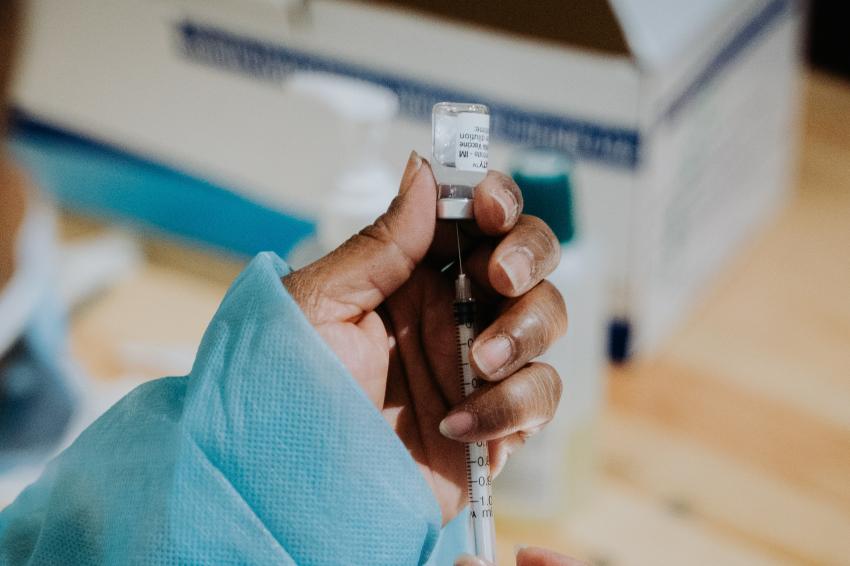Two FDA Vaccine Experts Quit over Covid Boosters
In view of the large number of people in developing countries who have not even received their first dose of a Covid vaccine, the World Health Agency (WHO) has repeatedly questioned the idea of offering a third dose to people in wealthy countries who are neither elderly nor immunocompromised.
Up to now, the two leading US public health authorities, the FDA and the Centers for Disease Control (CDC), have taken a wait-and-see stance on boosters, citing a lack of evidence that these are useful and the pressing need to persuade more people to get a first dose. Biden’s chief medical officer, Anthony Fauci, initially also hesitant, is now dropping hints that three doses could become the standard regimen.
With Covid cases rapidly multiplying across large swaths of the country and amid fears that that the protection offered by some of the vaccines wanes more quickly than originally thought, Biden has said he believes offering boosters to all is the best way to curb the spread. Some skeptics, however, have accused the vaccine makers of wanting to protect a steady source of income.
The officials leaving the FDA are Office of Vaccines Research and Review (OVVR) director Marion Gruber and deputy director Phillip Krause, both long-time employees described as “pivotal” in the US vaccination effort. Citing a letter signed by Peter Marks, director of the FDA’s Center for Biologics Evaluation and Research, to which the vaccine research belongs, US trade journal Fierce Pharma said Gruber will step down on Oct. 31, Krause on an unspecified date in November. Marks will lead OVVR until new interim leadership is appointed.
Marks’s letter touts Gruber's contributions throughout her career as “immeasurable, but never more so than during the COVID-19 pandemic, when her leadership of efforts to authorize vaccines ensured they met the high standards the public has come to expect from FDA.” It also praises Krause for his “keen insight and experience in addressing a wide variety of challenges and liaising with public health officials around the world to address critical vaccine-related issues.”
The timing of the FDA departures is critical, coming two weeks before the Sept. 17 meeting of the agency’s advisory committee meeting to discuss Pfizer’s late August application seeking approval for boosters. Under Biden’s booster plan, the US is to begin to administering a third Covid vaccine doses during the week of Sept. 20, starting with the most vulnerable populations – provided the FDA and the CDC give the go-ahead in time.
Phase 3 trial data submitted to the FDA by Pfizer and German partner BioNTech, whose Comirnaty vaccine is the only one fully-approved, showed that a booster dose administered five to eight months after the second shot elicited significantly higher neutralizing antibody titers against the wild type virus and the Beta and Delta variants, compared to the levels observed after the two-dose primary series. In recent studies, this Covid vaccine long lauded as the “gold standard” was seen to lose efficacy more quickly than some of the others, in particular Moderna’s.
FDA’s reputation sags after Alzheimer nod
The two vaccine experts are not the only high-ranking FDA officials in a difficult place at present. Since Biden’s inauguration in January, the top US health agency has been without a permanent commissioner who could lend authority to challenging decisions. The standing of acting commissioner Janet Woodcock, who was long expected to be permanently appointed, has suffered badly from her decision to approve Biogen’s Alzheimer’s drug Audhelm, and she is now believed out of the running.
The antibody leveraged by Biogen, which is designed to target amyloid plaques in the brain, is the first Alzheimer’s drug to receive FDA clearance in nearly two decades, reports said. It is also the only such medication designed to treat the disease rather than just symptoms. However, Biogen’s list price of $4,312 per infusion, or $56,000 per year, has shocked the public, US lawmakers and even the national Alzheimer’s Association, especially as most recipients would be on state-run Medicare health plans for the elderly.
In late June, the US House of Representatives opened an investigation into the conditions under which the drug received approval despite unclear clinical trial results the agency’s own independent advisors firmly objecting. The FDA has been given a deadline of Sept. 16 to provide an explanation.
Author: Dede Williams, Freelance Journalist












